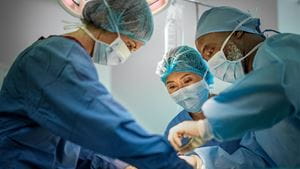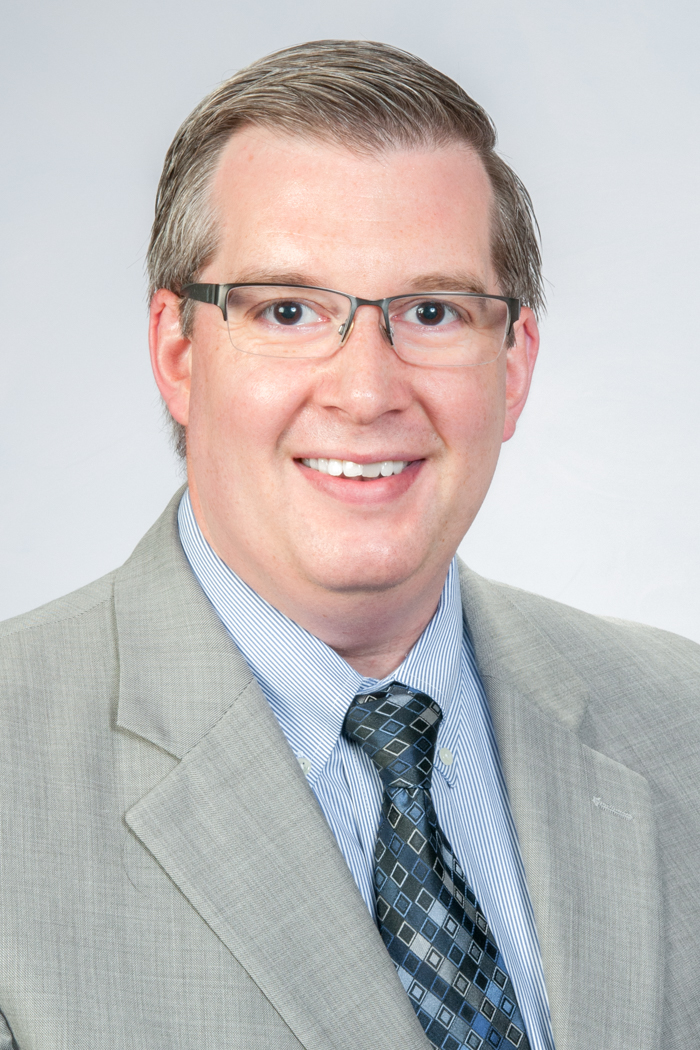
A successful experience for a surgery patient is similar to building a house. There is a lot of preparation that needs to be done beforehand, everyone needs to work together and know what is being done at every stage in the process, and a solid foundation needs to be established so the house stays in good shape for decades in the future.
Rochester Regional Health hospitals are a Surgical Quality Partner of the American College of Surgeons (ACS), meaning the health system participates in several quality programs to ensure patients are receiving the best possible outcomes.
As the Eastern Region Chair of Surgery, Director of Surgical Quality, and Geriatric Surgical Program Director for Rochester Regional Health, Matthew Schiralli, MD, has a unique insight into how the partnership works and explains how surgical patients benefit.
As a Surgical Quality Partner, Rochester Regional Health hospitals are involved in several ACS Quality programs. The goal of each program is to improve the quality and safety of patient care. Doctors, nurses, surgical teams, and hospital staff work toward this goal by anticipating the individualized needs of each patient and creating a patient-centered care plan to address each specific risk a patient could encounter.
“As an ACS standard, these programs focus on pre-operative risk screenings,” Dr. Schiralli said.
“This is how we provide better, safer care; we anticipate the problems before they happen and try to avoid them.”
To be a Surgical Quality Partner, each hospital is thoroughly assessed at the hospital and specialty levels on dozens of different standards. The assessment helps surgical departments to develop a standardized approach at their hospitals that helps reduce complications, minimize waste, and boost the value of surgical care for each patient.
All five Rochester Regional hospitals in the Finger Lakes region are involved in at least one ACS program partnership.
Rochester General Hospital
National Surgical Quality Improvement Program (NSQIP)
Metabolic and Bariatric Surgical Accreditation and Quality Improvement Program (MBSAQIP)
Unity Hospital
National Surgical Quality Improvement Program (NSQIP)
Geriatric Surgery Verification (GSV)
Newark-Wayne Community Hospital
National Surgical Quality Improvement Program (NSQIP)
Quality Verification Program (QVP)
Geriatric Surgery Verification (GSV)
Clifton-Springs Hospital & Clinic
National Surgical Quality Improvement Program (NSQIP)
Quality Verification Program (QVP)
Geriatric Surgery Verification (GSV)
United Memorial Medical Center
National Surgical Quality Improvement Program (NSQIP)
Geriatric Surgery Verification (GSV) – Commitment Level
All four ACS Quality Programs affect patients in some way, whether the effects are directly with the patient or embedded in the way the system runs.
The GSV Program partnership directly affects older patients across all surgical disciplines through the Rochester Regional Health Geriatric Surgical Program. By achieving and complying with all 30 standards of the program, surgical teams are able to address direct patient care in 5 phases: pre-hospital, pre-operative, during the operation, post-operative, and post-hospital care. Identifying risks through pre-operative screenings allows a patient’s care team to create individualized plans that help to mitigate risks in advance. By the time a patient is in surgery, their care team is implementing an individualized plan.
Like the process of building a house, the ACS Quality Programs provide the foundation of high-quality patient care through the collection of good quality data that helps surgical teams to function reliably while tracking and improving quality. Each patient is assessed for their pre-operative risks and has their post-operative outcomes monitored closely over time.
“As we are tracking the outcomes of all the other patients who came before our current patients, we are recognizing where the areas for improvement are and addressing them before the next patients come,” Dr. Schiralli said.
All of the ACS Programs involve physicians, advanced practice providers (APPs), and nurses reviewing data reports on a regular basis to address opportunities to create response plans.
Within the GSV Program, all providers involved – physicians, nurses, APPs, therapists, social workers, pharmacists, and others – come together weekly to review the high-risk patient care plans before the patients arrive at the hospital for surgery. Once those patients arrive, the team executes the care plan on a daily basis.
Surgical teams across Rochester Regional Health are able to look at years’ worth of patient data and see how much progress has been made by implementing the best practices from each program.
One measure of success with quality programs is seeing fewer patients with post-operative wound infections, returning to the operating room, or being re-admitted to the hospital.
With their extensive experience of building successful quality programs, surgeons from Rochester Regional are being asked to visit other hospitals alongside the ACS to evaluate how their surgical teams are putting best practices into place.
“We have created a new standard of care,” Dr. Schiralli said. “A patient might not notice the standard of care being changed because it is what we do now. It is part of our culture and process and all of this leads to better, safer care for our patients.”
